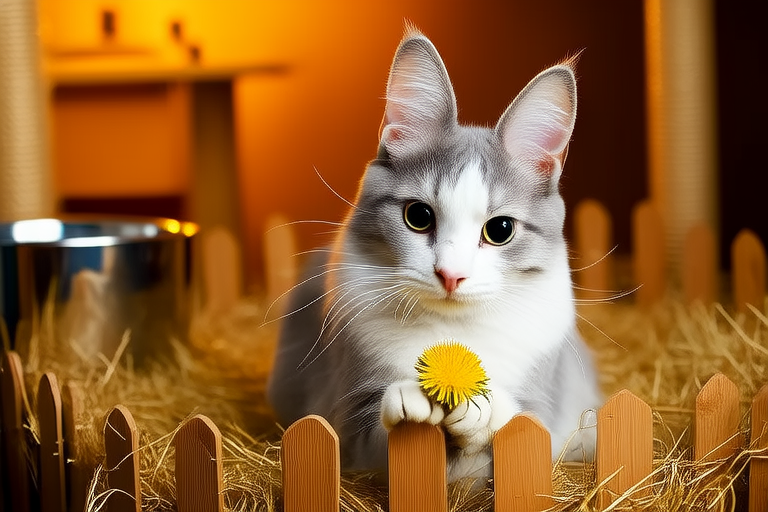Unraveling the Mysteries of Chinchilla Care: A Comprehensive Guide
Welcome to your ultimate guide on chinchilla care. Whether you’re a first-time owner or an experienced handler, this article will provide you with all the information you need to ensure your chinchilla lives a happy, healthy life. From understanding their dietary needs to setting up the perfect habitat, we’ll cover everything you need to know about these adorable creatures.
Understanding Chinchillas: An Overview
Chinchillas are small rodents native to the Andes Mountains in South America. Known for their soft, luxurious fur, they have become popular pets due to their playful nature and unique appearance. However, they require specific care to thrive in captivity. Understanding their natural habitat and behaviors is crucial for providing them with the best possible environment.
Dietary Needs: What Do Chinchillas Eat?
Chinchillas have very specific dietary requirements that must be met to maintain their health. Their diet primarily consists of hay, which should make up the majority of their food intake. Timothy hay is particularly recommended as it provides essential nutrients and aids in digestion. Additionally, chinchillas should be fed a high-quality commercial chinchilla pellet that is specifically formulated for their nutritional needs.
It’s important to avoid feeding chinchillas certain foods that can be harmful. These include sugary treats, fruits, and vegetables that are high in sugar or water content, as they can cause digestive upset or obesity. Instead, occasional safe treats like rose hips or dried rosemary can be offered sparingly.
Habitat Setup: Creating the Perfect Environment
The habitat setup is one of the most critical aspects of chinchilla care. Chinchillas need a spacious cage that allows them plenty of room to move around. The cage should be at least 4 feet wide, 2 feet deep, and 3 feet tall. Wire cages are preferred as they allow good air circulation and prevent the buildup of moisture that can lead to respiratory problems.
Bedding material is another important consideration. Aspen shavings are ideal because they are dust-free and easy to clean. Avoid cedar and pine shavings as they can irritate a chinchilla’s respiratory system. Additionally, include nesting boxes or tunnels where your chinchilla can hide and feel secure.
Grooming Needs: Keeping Your Chinchilla Clean
Chinchillas have very dense fur, which requires special attention to keep it clean and free from mats. Unlike other animals, chinchillas do not bathe in water but instead take dust baths. Provide a shallow container filled with commercial chinchilla dust several times a week. This helps remove oils and dirt from their fur without stripping away natural oils.
In addition to dust bathing, regular brushing can help remove loose fur and prevent matting. Use a soft-bristled brush designed for small animals. Pay extra attention to areas like the tail and behind the ears, where fur is prone to matting.
Exercise Requirements: Keeping Your Chinchilla Active
Chinchillas are active animals that require daily exercise to stay healthy. In addition to the space provided by their cage, it’s beneficial to provide toys and structures within the cage that encourage climbing and jumping. Items such as ladders, platforms, and chew toys can stimulate their natural behaviors.
Supplemental playtime outside the cage is also important. Allow your chinchilla supervised time to explore a safe, chinchilla-proofed area. This helps prevent boredom and promotes mental stimulation. Ensure the area is free of hazards such as electrical cords and small objects that could be swallowed.
Common Health Issues: Recognizing and Preventing Problems
Like any pet, chinchillas can face various health issues. Respiratory infections are common and can be caused by poor ventilation or exposure to drafts. Signs include sneezing, discharge from the nose, and labored breathing. If you notice these symptoms, consult a veterinarian immediately.
Dental problems are another frequent issue. Chinchillas’ teeth grow continuously, so they need to gnaw on appropriate items to wear them down. Provide plenty of chew toys made from untreated wood or cardboard. Overgrown teeth can cause pain and difficulty eating.
Obesity can occur if a chinchilla’s diet is too rich in calories or if they lack sufficient exercise. Monitor your chinchilla’s weight and adjust their diet and activity levels accordingly.
Tips for Social Interaction: Bonding with Your Chinchilla
Chinchillas are generally quiet and gentle animals, making them excellent companions. To build a strong bond with your chinchilla, spend time interacting with them each day. Start by offering treats and gradually progress to handling them gently. Always approach your chinchilla calmly and avoid sudden movements that might startle them.
Some chinchillas enjoy being held, while others prefer to remain on the ground. Observe your chinchilla’s behavior and respect their comfort level. Never force interaction if your chinchilla seems uncomfortable.
Frequently Asked Questions
How often should I clean my chinchilla’s cage?
Clean your chinchilla’s cage at least once a week, removing soiled bedding and waste. Spot clean between full cleanings to maintain hygiene.
Can chinchillas live alone?
Chinchillas are solitary animals by nature and typically do not require companionship. However, some owners choose to house two chinchillas together, especially if they are neutered or spayed. Introduce them slowly under supervision to ensure compatibility.
What signs indicate my chinchilla is stressed?
Stress in chinchillas may manifest as overgrooming, hiding excessively, or changes in eating habits. Address the underlying cause, such as a noisy environment or overcrowded cage, to reduce stress.
Do chinchillas need vaccinations?
Chinchillas do not require routine vaccinations like dogs or cats. Regular veterinary check-ups are still important to monitor their health and address any potential issues early.
Conclusion
By following the guidelines outlined in this comprehensive guide, you can provide your chinchilla with the care they need to thrive. Remember that each chinchilla is unique, so pay close attention to their individual needs and preferences. With proper care, your chinchilla can be a delightful and rewarding companion for many years to come.
